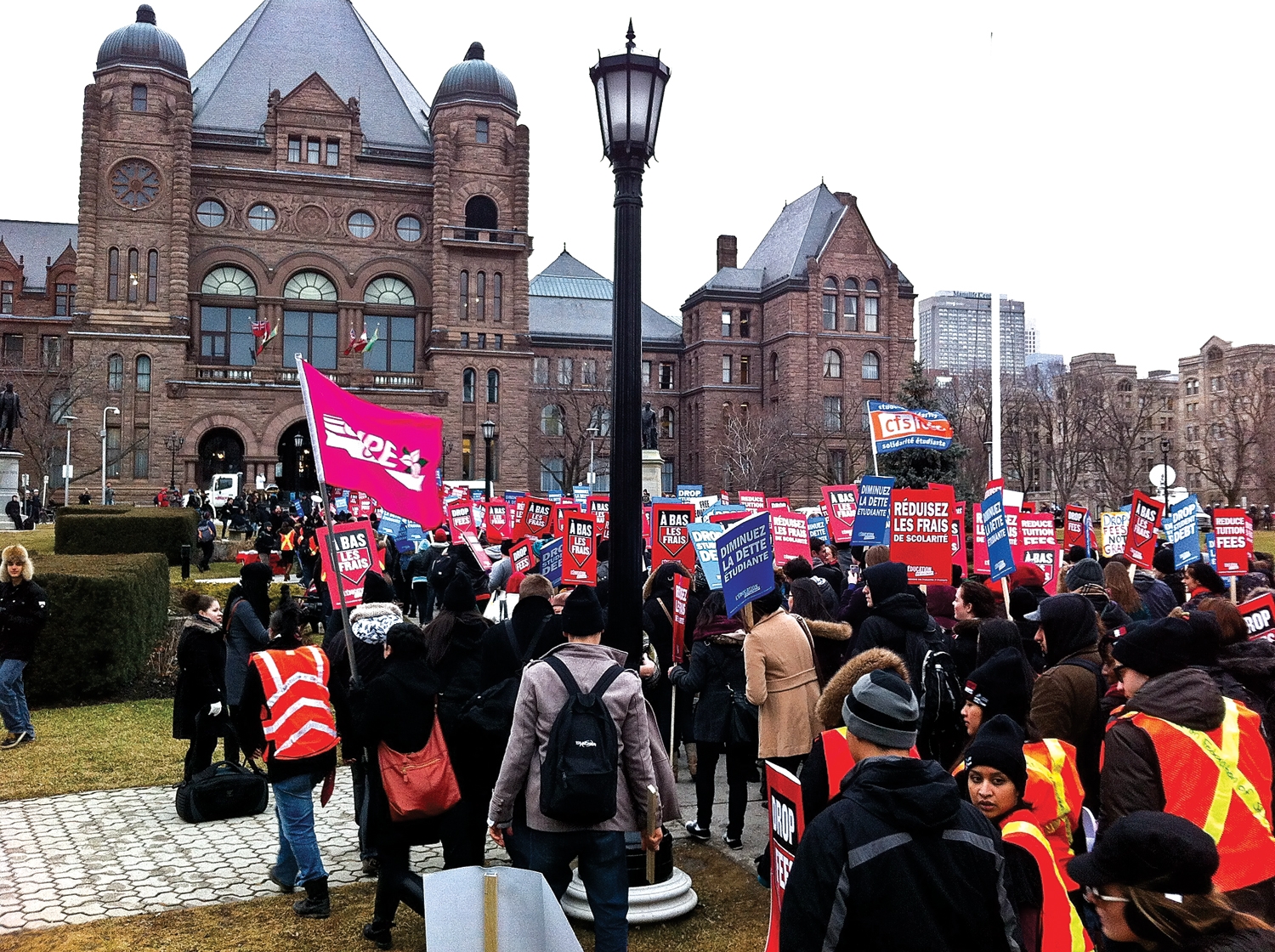Protesters demand broader accessibility to limited grant program
Assistant News Editor
@jackieperlin

Students from across the country came out February 1 in an effort to pressure both the federal and provincial government for affordable and accessible education.
Approximately 5,000 students in the Greater Toronto Area —including about 1,000 from York —marched to Queen’s Park, asking the provincial government to revise their grant program, which promises $1,600 in grant money for a qualified few students, excluding a large number of the student population.
“I’m really happy with the turnout,” says Alastair Woods, vp campaigns and advocacy for the York Federation of Students (YFS), adding this year’s turnout from York is comparable to past years.
“We were trying to get our voices heard as the new provincial budget comes into effect,” states Woods, explaining that the YFS would like to see the government make a “real” investment in education, which is money that can actually reduce tuition fees, reduce class sizes, and hire more educators.
Alison Astan, a sociology student at York, says she went to the rally to voice her opposition to the lack of a tuition fee reduction.
“[The grant] didn’t really seem to come to reality,” said Astan.
York student Adrian Johnston explained at the rally that he was there voicing his concern for students in debt, including himself.
“I’m from a single parent family. My mother’s in debt, my brother’s going to be in debt,” says the computer engineering major. “It’s a huge load to bear and the government isn’t providing as much help as they should be and we want to get them to change.”
Woods points out the opportunities that can come from a minority government. While the budget has already been outlined, it must be approved by the New Democratic Party and the Progressive Conservative opposition; both of whom do not support the grant program.
Additionally, the tuition fee framework, which determines how much tuition is set to rise and fall, will only be outlined in the spring.
While a tuition fee reduction has never occurred, Woods maintains that nothing comes easy.
“We’ve never told people that things would come within a few weeks […] I’m sure the government would really appreciate it if people just said ‘we’re not gonna change anything, we’ll let them do what they want because what’s the point?’ Our goal is to engage people and keep them engaged […] to keep pushing the government to do the right thing,” says Woods. He believes that the government is beginning to realize the limitations to the tuition grant program.
According to Sandy Hudson, chair of the Canadian Federation of Students Ontario (CFS-O), the Liberal government has already promised changes to the tuition grant merely a day after the Day of Action.
An interview with Glen Murray, the Ontario minister of training, colleges, and universities gave to the Canadian Broadcasting Corporation (CBC), shows that he stated the Liberal government has actually started looking at making the grant more accessible for September 2012 to include more students and that there will be more money coming out of the budget for higher education.
“My budget envelope is increasing, and transfers to colleges and universities will continue to grow,” Murray told the CBC.
Hudson also says the CFS-O also met with the minister February 7, outlining where the grant falls short with tentative meetings set up in the future to discuss the grant.
While Hudson was unsure what specific changes would come to the grant program, she says the Day of Action ultimately helped the government recognize that students are concerned about the issues.



